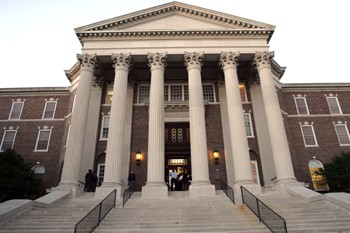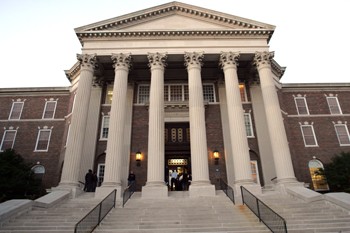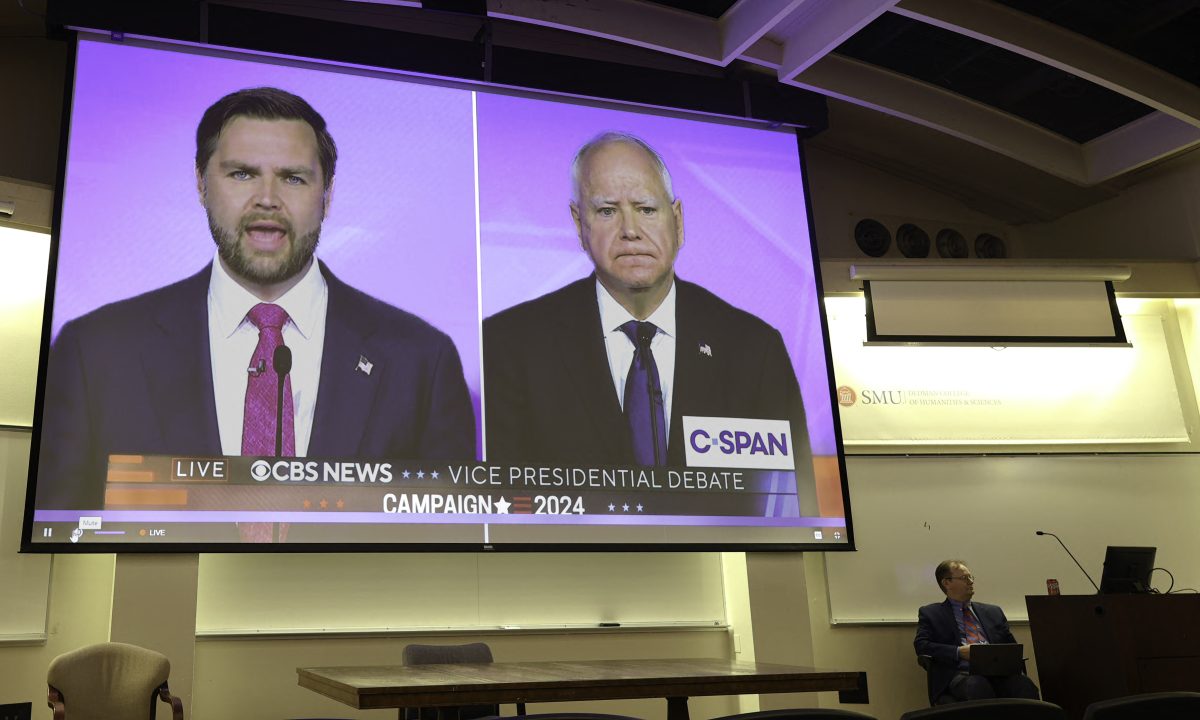
(John Schreiber)
Senators debated the merits of moving fraternity and sorority recruitment during their meeting Tuesday.
Traditionally held during the spring semester, Study Body Vice President Bethany Peters and Dedman II Senator Charles Slick led the senatorial forum which discussed the possibly of moving recruitment to fall break, or even to the beginning of the fall semester.
Under the discussed proposal, there would be seven weeks of recruitment beginning on the Friday before the university holidays on Monday and Tuesday. The last day of class would also be the last day fraternities and sororities could hold initiation.
“It isn’t a Greek thing,” Peters said. “It’s also for non-Greeks. We want to have a discussion. We want to know how this will affect you.”
Slick and Peters say that both the Interfraternity Council and the Panhellenic Council are in support of moving recruitment. However, even with both councils supporting it, Slick says that the move will not happen soon. Any changes to the schedule will not take place before the year after next.
“This is such a long process,” he said. “It takes about two years to formulate.”
Changes to the recruitment schedule would need to be approved by the university, according to Jennifer Jones, assistant dean of student life and SAMSA director. There is no specific policy about scheduling. Changes would also need to be approved by the national offices for each chapter.
Senators addressed concerns of the change affecting academics. Meadows Senator Taylor Thornley notes that if recruitment were to be moved to fall break then it would take place at the same time that many classes become more difficult. Meadows Senator Michael Goodman also notes the possible effects on academics, suggesting that research into the General Education Curriculum be conducted to find out if the majority of classes had increased workloads during the beginning or end of the semester.
Cox Senator Andrew Tuttle says that he is concerned with moving recruitment to the beginning of fall semester because many students won’t know if they are able to handle the increased workload that develops when they make the transition from high school to college. Recruitment is time-consuming, which might negatively affect students.
Another issue was the amount of time a potential Greek would have before recruitment. Student Concerns Chair Patrick Kobler brought up the possibility of increased hazing since there would be little time beforehand for potential Greeks to develop a personal relationship with fraternity and sorority members.
“I think it still might happen in some houses whether or not you move it,” Slick said.
Hispanic-American Senator Sarah Acosta says she wasn’t sure she would participate in Greek life when school began. Giving students the whole semester allows them to make a decision.
It would also allow students time to become familiar with the many chapters and decrease the possibility of one chapter having a specific type of student, according to Chief of Staff Rob Hayden. Hayden says he likes the fact that unlike other schools, SMU’s fraternities and sororities are diverse. But Engineering Senator Barret Matthews believes that moving recruitment to the beginning of the year would be good, noting that the system works for other schools.
Slick says he wants to change the recruitment dates because after recruitment, new members have only six weeks until summer. “It’s a disservice. They have to wait until their sophomore year.”









